Chatbots don’t care about punctuation — here’s what happened when I tested it
These test results took me by surprise
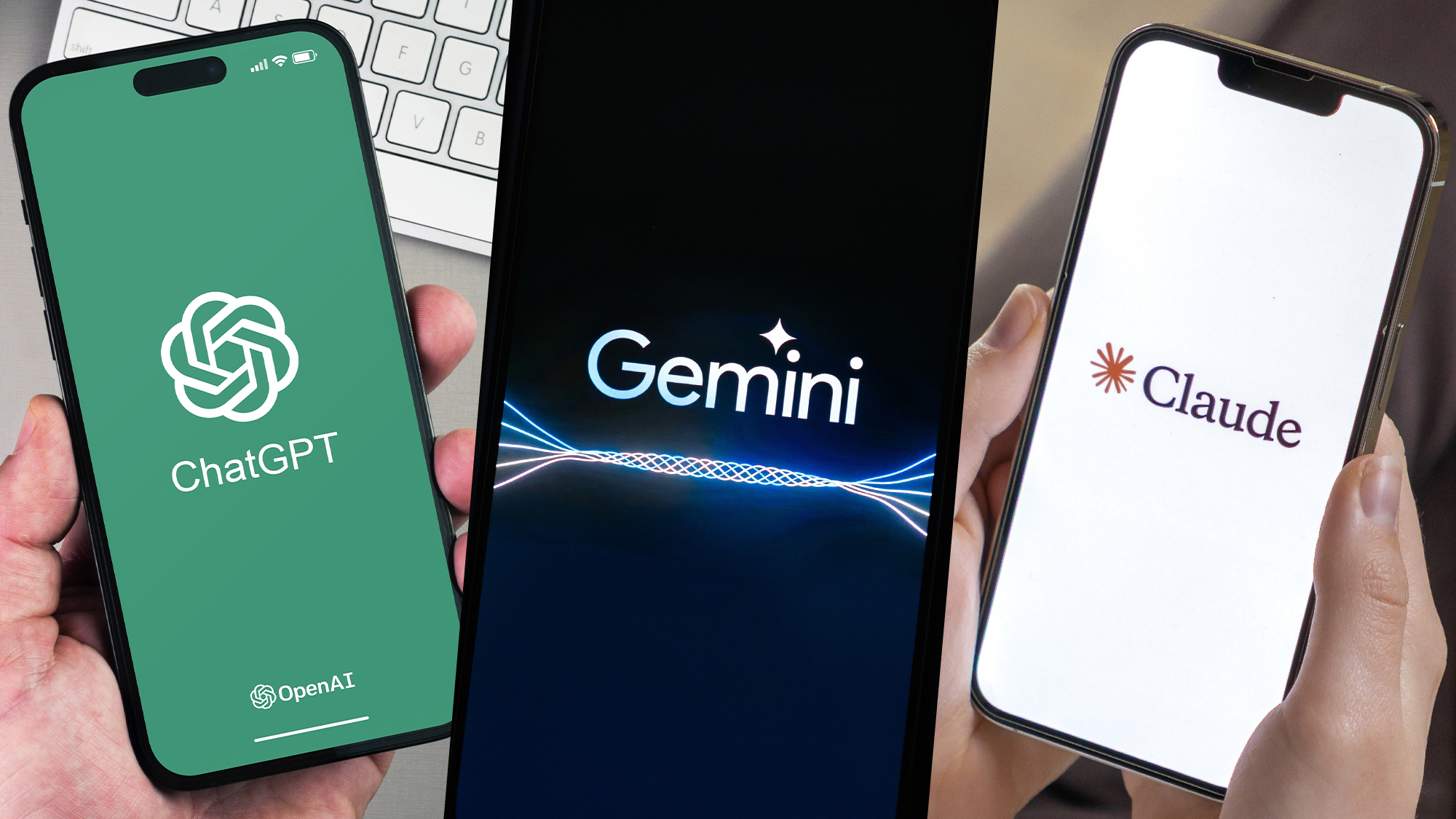
As chatbots advance, they naturally become more intuitive because of advanced reasoning skills. For example, ChatGPT-5 understands context much better than legacy models like ChatGPT-4o, and Gemini 2.5 Flash has already shown its ability to understand user intent with Nano Banana. But while chatbots can handle everything from multimodal image generation and advanced math, I wondered if punctuation within the prompts is needed.
When I text, especially with close friends and family, anything goes. I’m usually juggling a kid on one arm and dishing out snacks with the other, so punctuation is an afterthought. Yet, the receiver usually gets the gist.
For that reason, I just had to know if chatbots could still understand me if I left punctuation marks out or threw in an occasional emoji. So I gave Gemini, Claude and ChatGPT the exact same prompts in two versions: 1) proper punctuation and 2) no punctuation and misspellings. I ran five prompts (10 in total) in categories like cooking, travel, fitness and productivity to see how the bots handled it. Here’s what happened.
1. Creative brainstorming
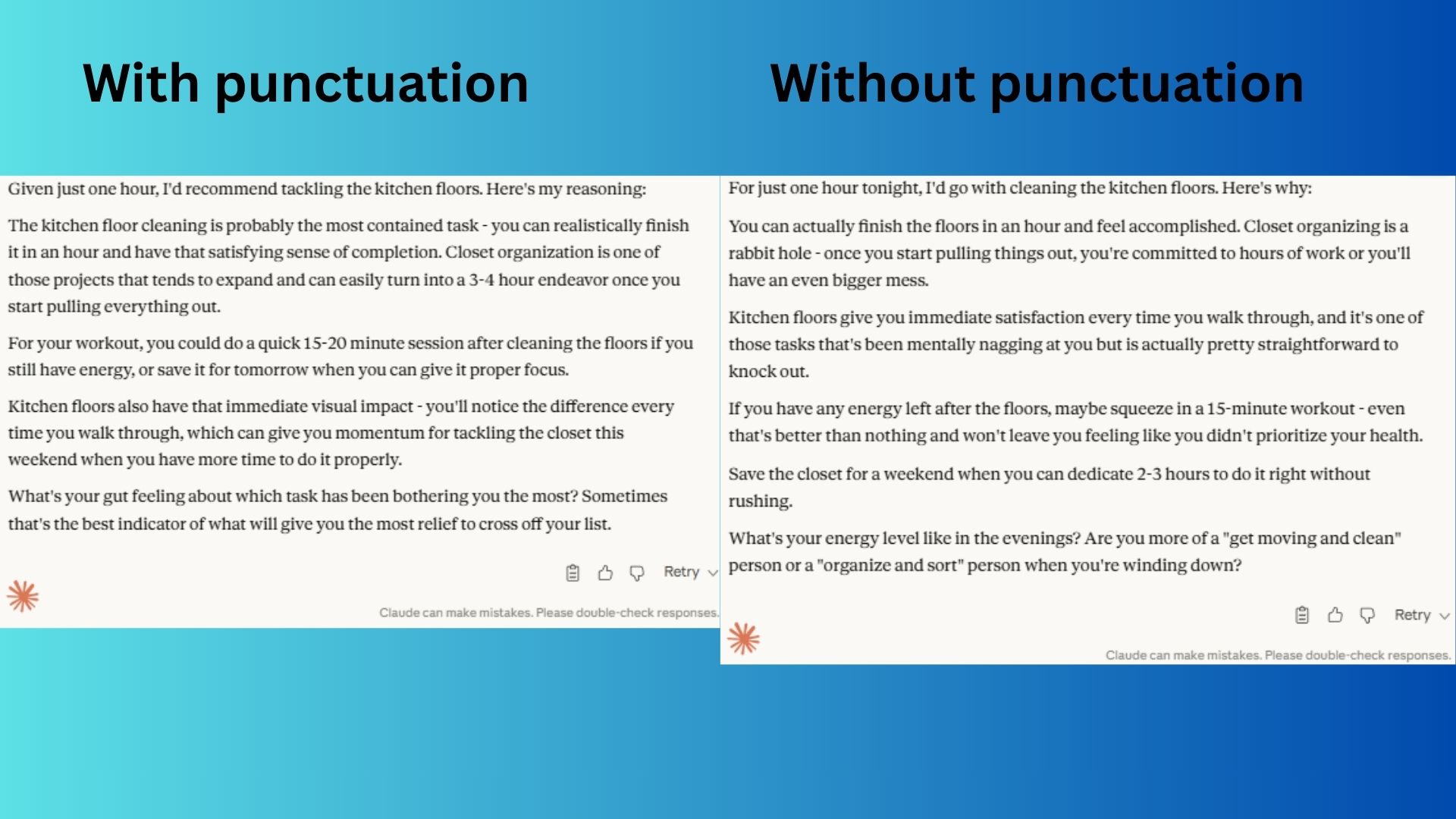
Prompt a: "Brainstorm 5 clever side hustle ideas for a parent with 3 kids, limited free time, and a creative background."
Prompt b: "Gimme 5 cool ideas for a mom with 3 kid limited free time and creative skillz”
Punctuation: This response seemed more detailed and professional, with an actionable plan that felt like a strategic business guide. The chatbot delivered a clear path for me to get started on each unique idea.
No punctuation and errors: This response felt more like a quick and energetic pep talk offering me relatable ideas that are easy to grasp. It felt more like good advice from a clever friend who knows my life.
Conclusion: Both responses offer very similar, viable ideas, but I like the response from the prompt without punctuation. It feels friendlier with the hype I need if I had to spend my free time working even more.
2. Decision-making aid
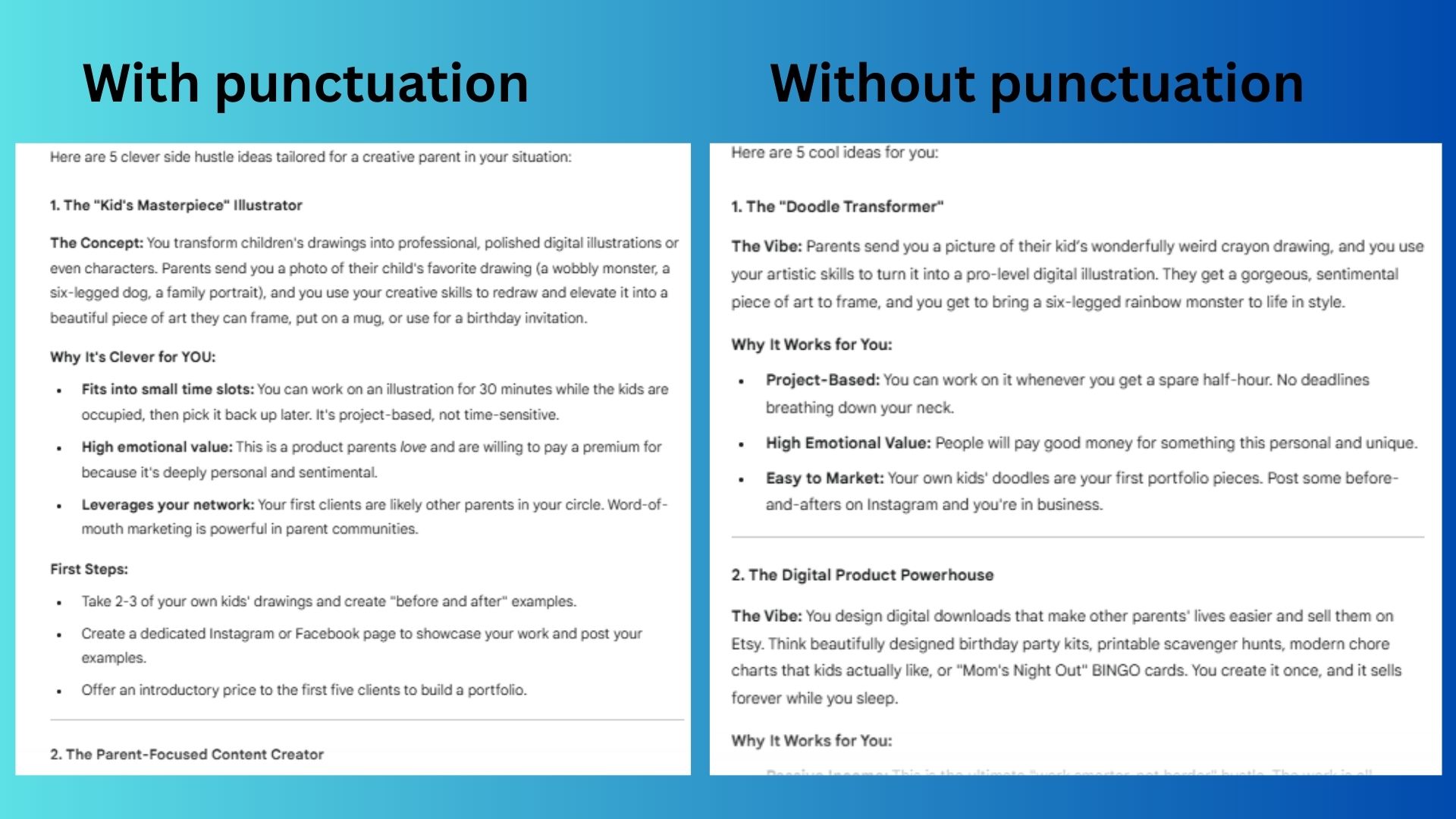
Prompt a: “I have procrastinated organizing my closet, but I also need to clean the kitchen floors and workout. Help me decide on what to do with my free hour this evening.”
Prompt b: “im procrastinating to organze my clost but I also ned to clean the kitchen florrs and work out help me make a decision for my free hour 2nite.”
Punctuation: This advice sounds more psychologically focused and as if it’s coming from someone who wants to understand the "why" behind the decision. It seems the response here is based on the primary motivator of crossing off a mentally burdensome task.
No punctuation and errors: Focusing on practicality, this response feels friendly and more straightforward. The advice is relatable and seems to be based on the chatbots decision rather than taking into account my current energy levels. This one feels like a “get it done regardless” approach, which I like.
Conclusion: Both responses are excellent and offer the same sound advice. The choice between them comes down to which approach I personally find more helpful, which happens to be the second one. It is basically telling me what to do without leaving room to back out.
3. Writing / tone control
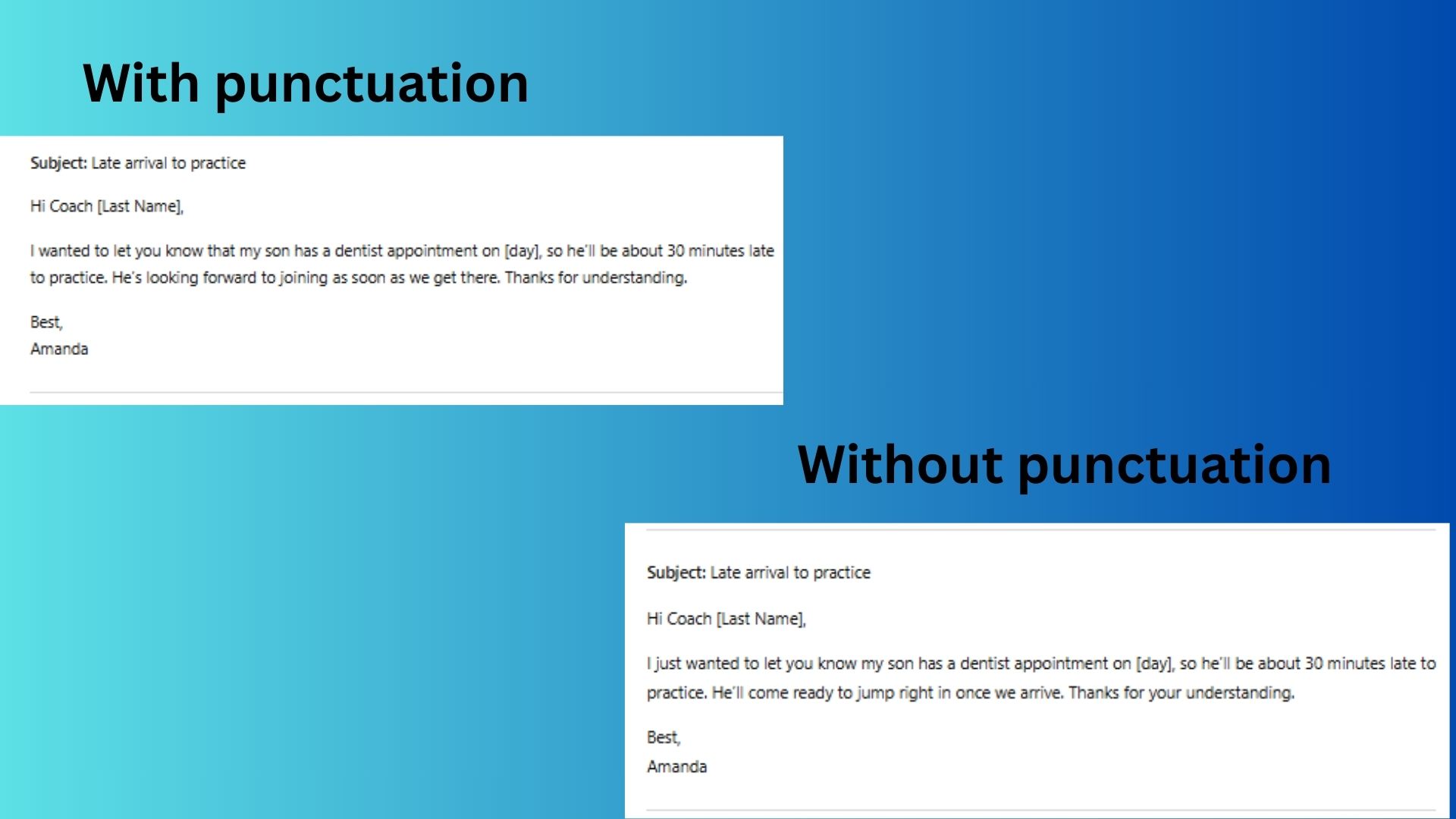
Prompt a: "Write a professional but warm email to my son’s soccer coach regarding a dentist appointment that will make him 30 minutes late to practice. Keep it under 100 words."
Prompt b: "write a professional but warm email to sons soccer coach regarding dentist appt that will make him 30 minutes late to practice keep it under 100 words"
Get instant access to breaking news, the hottest reviews, great deals and helpful tips.
Punctuation: This response is efficient and positive, highlighting my son’s eagerness and energy for the game.
No punctuation and errors: This response actually seems slightly more proactive by emphasizing that my son will come “ready to jump right in.” This assures the coach the transition from being late to practice will be seamless.
Conclusion: Both emails are perfectly appropriate and would be well received by a coach. I can’t go wrong with either, but the prompt without punctuation led to a response that feels a bit more conversational, which I like. No need to be too professional in this case.
Reasoning / step-by-step
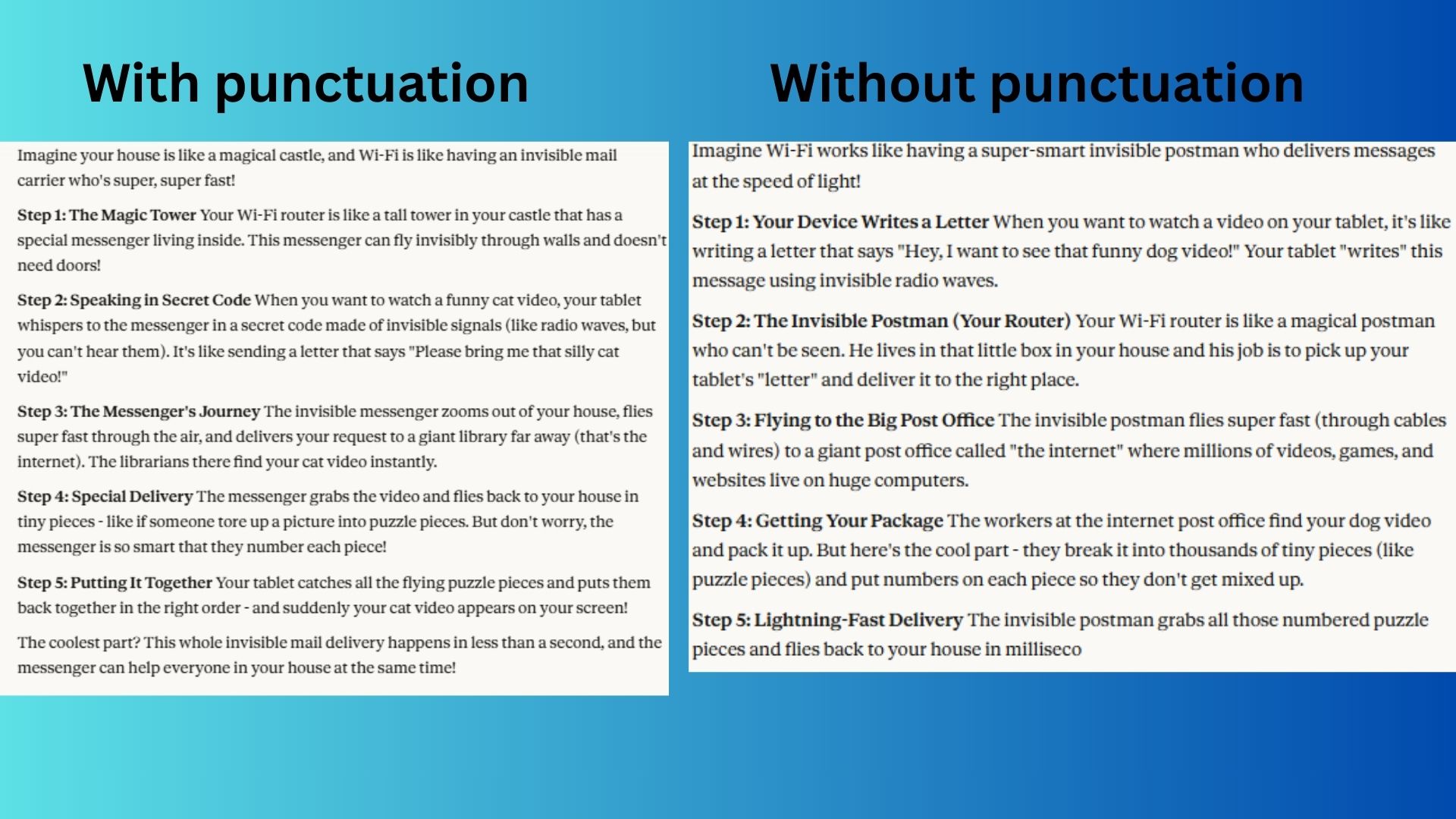
Prompt a: "Explain to a 10-year-old how Wi-Fi actually works, step by step, using a fun analogy."
Prompt b: "explain to 10yo how wifi actually works step by step using a fun analogy"
Punctuation: The chatbot leaned way into a fantasy and magical metaphor, which is good for a child with a big imagination who loves secret codes and castles.
Without punctuation and errors: A more grounded and perhaps better relatable, this analogy is one anyone would understand (we all get the mail system). It does a slightly better job of explaining the technical process because it isn’t grounded in magic.
Conclusion: Both responses are highly effective and engaging for a child. The choice really comes down to whichever metaphor I prefer, which happens to be the second one. I’m not one for fantasy, and this seems a little more relatable than the fantastical first one.
5. Personality & creativity check
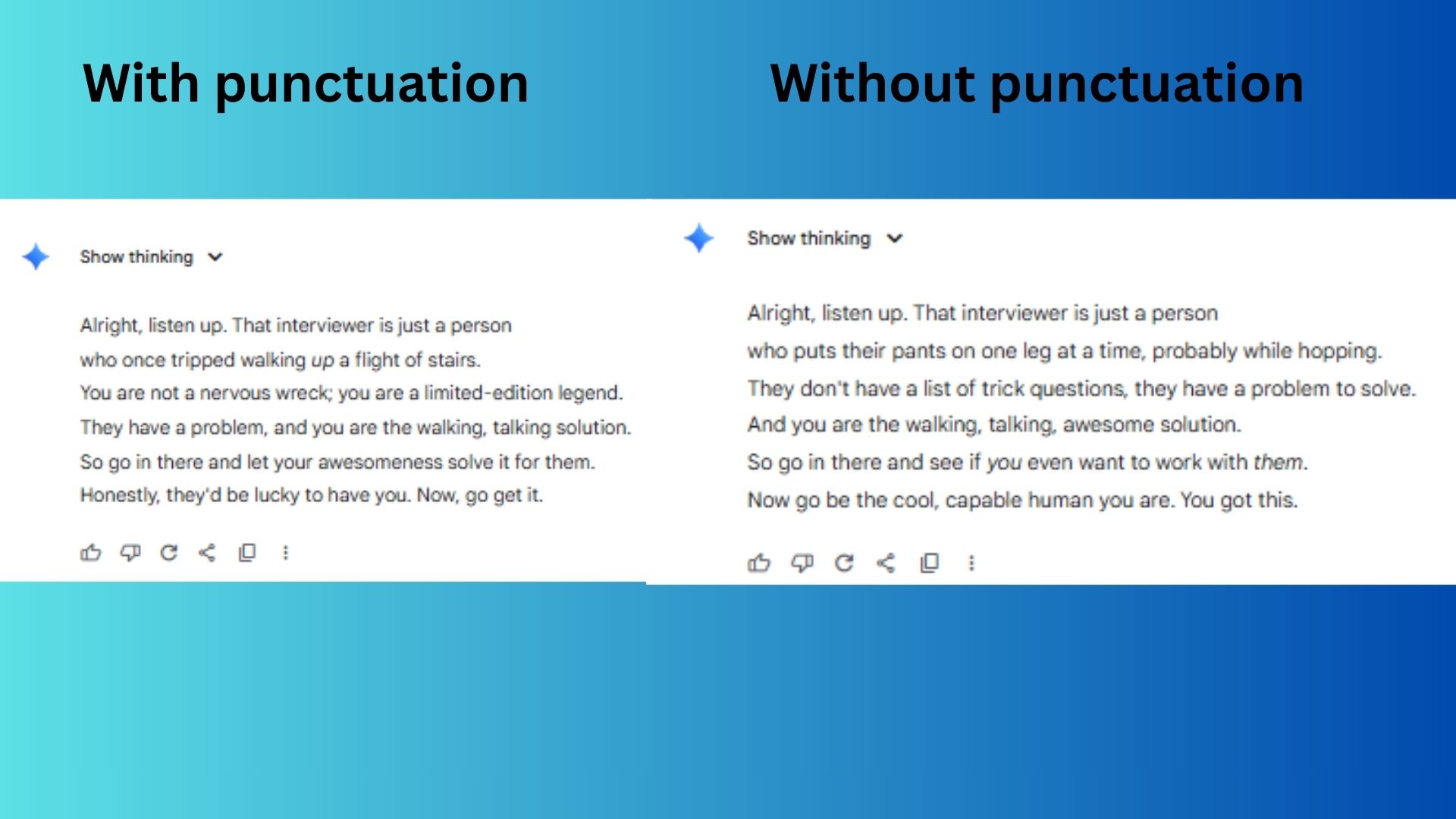
Prompt a: "Write a 6-line pep talk for someone nervous about a job interview. Make it funny, encouraging, and memorable."
Prompt b: “Write a 6line pep talk for some1 nervous about a job interveew. Make it funny encouraging memorable."
Punctuation: This response is good for a boost of unshakeable and powerful confidence. Almost as if a friend is saying “you’re the best person in the room.” This is a good response for someone who needs to overcome imposter syndrome by leaning into a powerful persona.
Without punctuation and errors: More relaxed, this one is helpful for encouragement to be your authentic self. It’s the “you got this!” conversation, best for a person who performs between when they remember the process is mutual and there’s no need to put the interviewer on a pedestal.
Conclusion: Both responses are good and designed to calm nerves and build confidence, but they do it in subtly different ways and through encouraging different mindsets. In this case, I liked the first response better.
The takeaway
This test shows that chatbots are certainly not grammar snobs and they “get it” even if words are misspelled and punctuation is missing. Regardless of which chatbot is used, the results of no punctuation are a friendlier and less formal response, similar to how a friend would react.
So go ahead and drop an occasional emoji or disregard punctuation as if the chatbot were a friend who totally understands you. The results may just be preferrable anyway.
More from Tom's Guide
- I tested Pangram, the ‘black light’ of AI detection built by ex-Tesla and Google engineers — here's how well it worked
- Grok 4 is crushing it — Elon Musk’s AI just topped the leaderboard that matters most
- Nano Banana just broke the internet with these viral trends — I tried these 5 prompts and I'm blown away

Amanda Caswell is an award-winning journalist, bestselling YA author, and one of today’s leading voices in AI and technology. A celebrated contributor to various news outlets, her sharp insights and relatable storytelling have earned her a loyal readership. Amanda’s work has been recognized with prestigious honors, including outstanding contribution to media.
Known for her ability to bring clarity to even the most complex topics, Amanda seamlessly blends innovation and creativity, inspiring readers to embrace the power of AI and emerging technologies. As a certified prompt engineer, she continues to push the boundaries of how humans and AI can work together.
Beyond her journalism career, Amanda is a long-distance runner and mom of three. She lives in New Jersey.
You must confirm your public display name before commenting
Please logout and then login again, you will then be prompted to enter your display name.
 Club Benefits
Club Benefits















